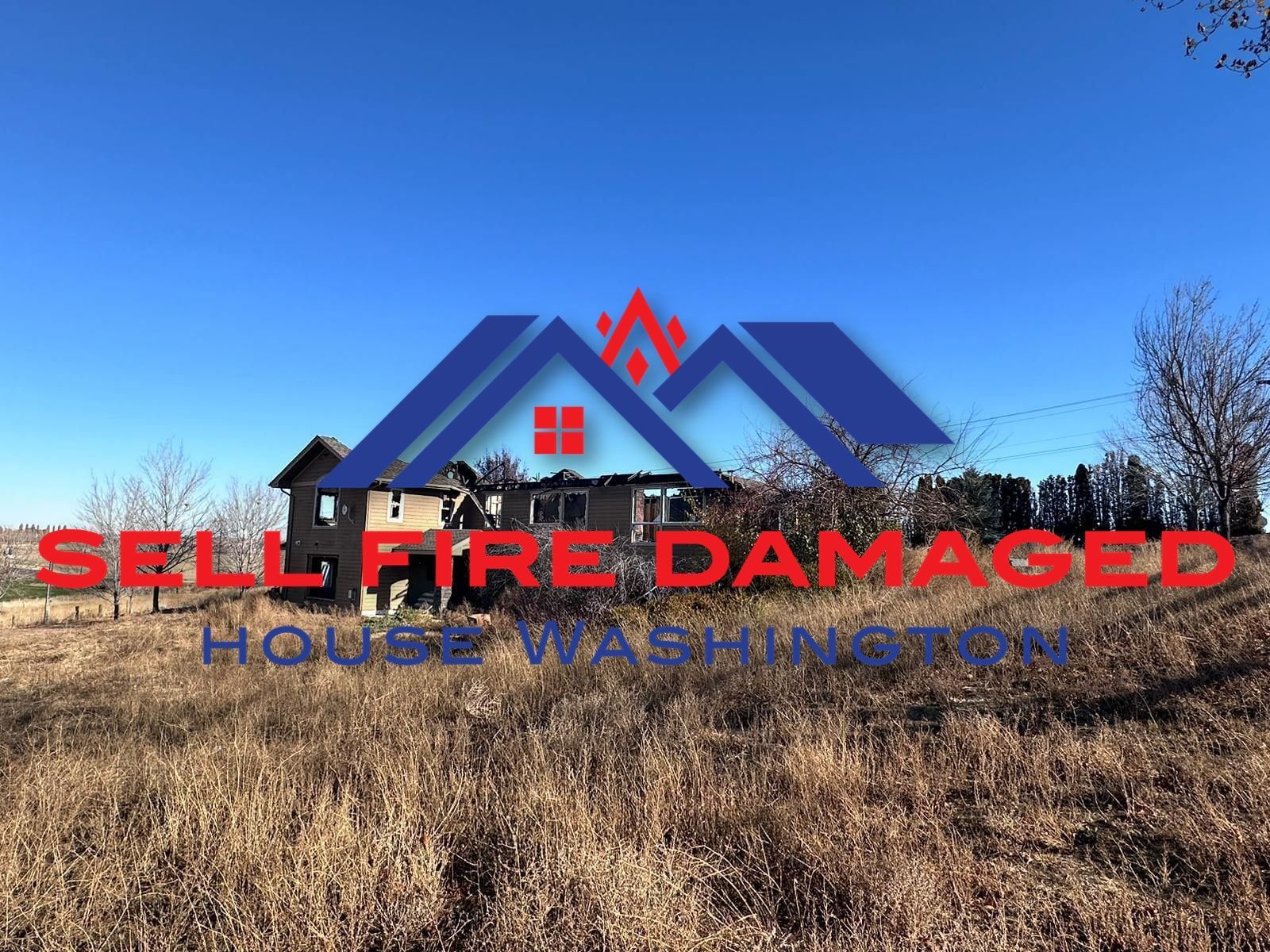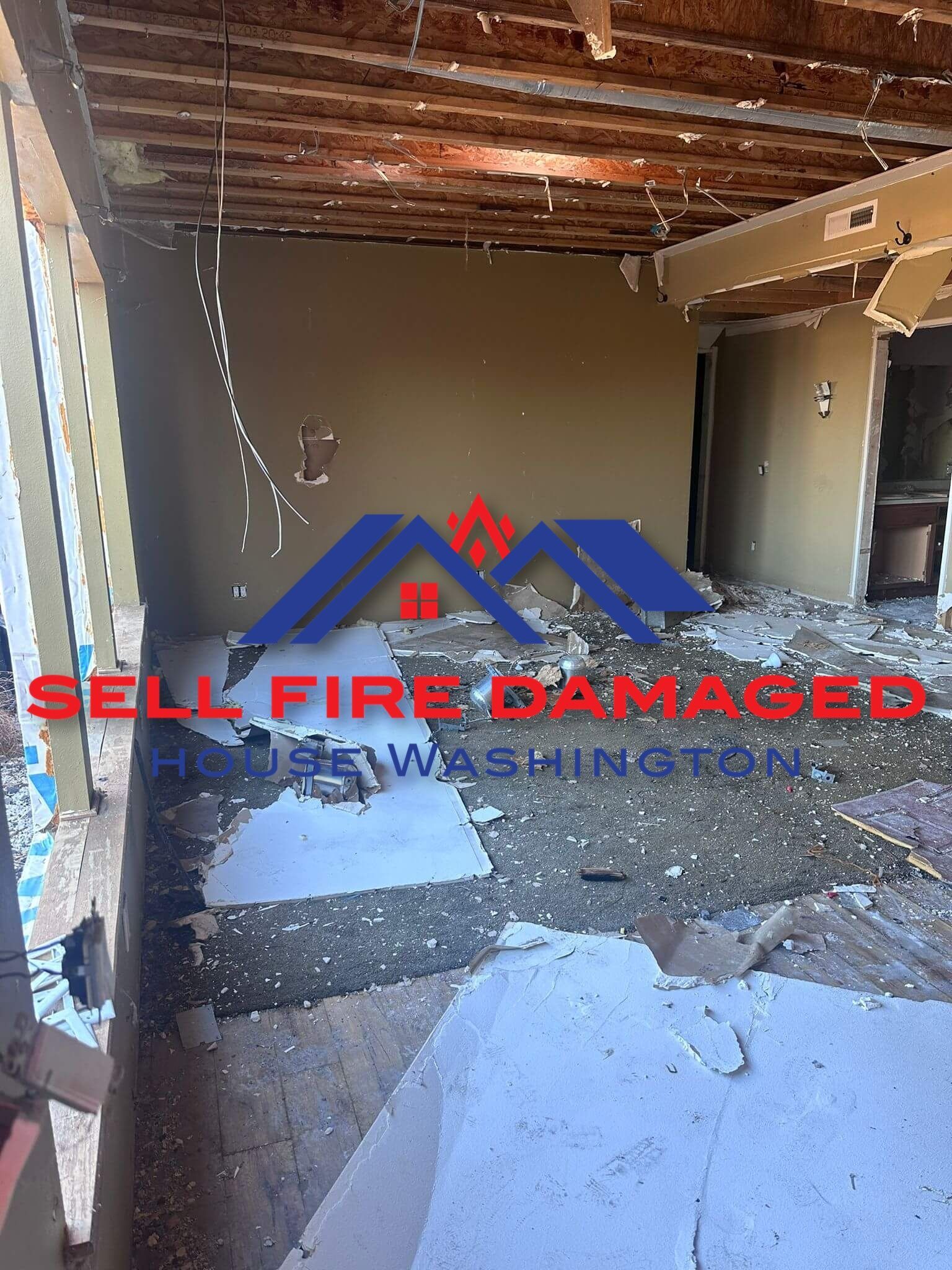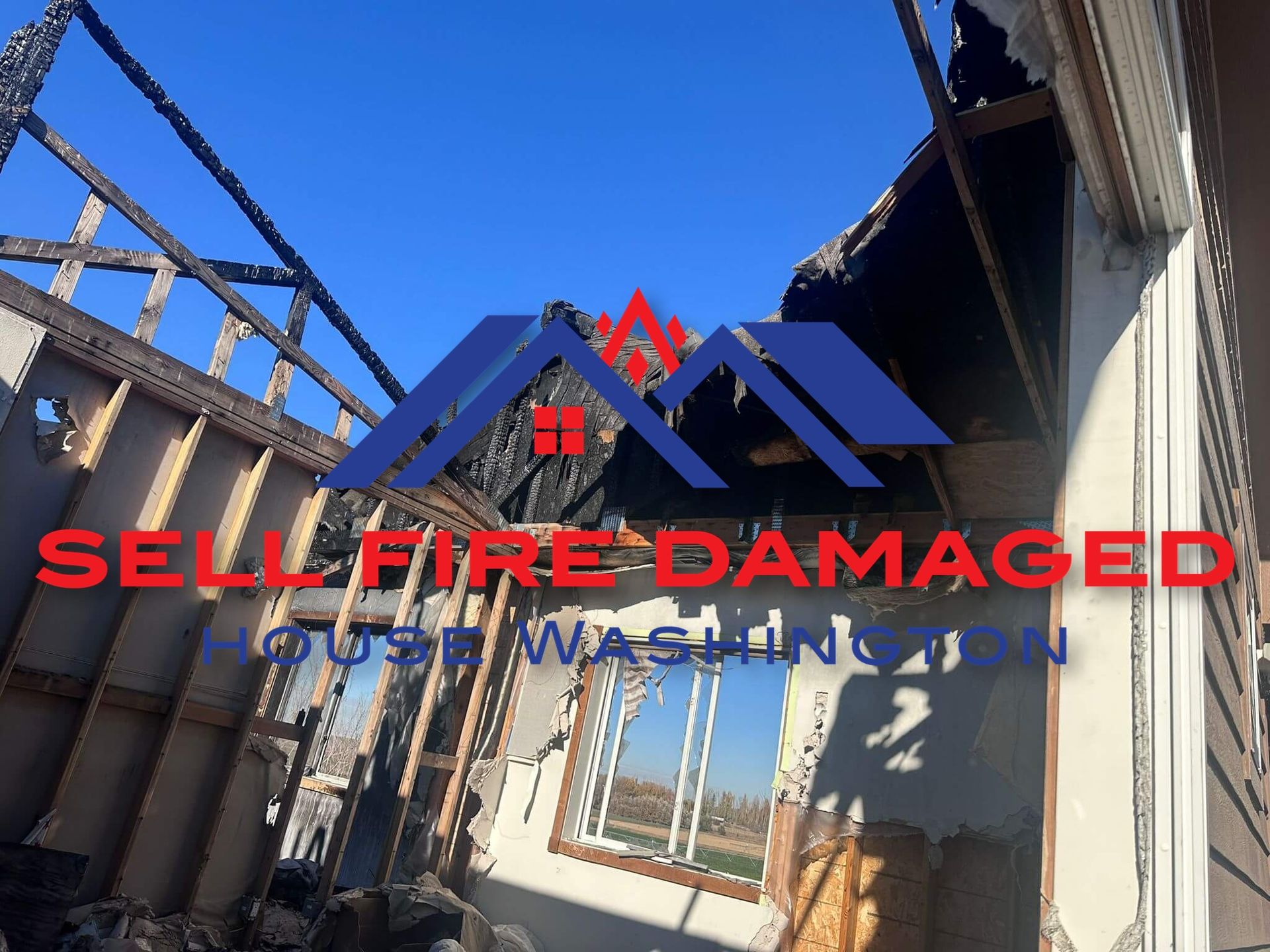How To Find Fire Damaged Properties In Washington
Published on July 28th, 2025
Lucas Sanders
AUTHOR
Free Offer Form
How to Find and Begin Flipping Fire-Damaged Properties In Washington
How to Find Fire-Damaged Properties in Washington: Check county assessor records for fire-damaged listings, review fire department reports (public under Washington Public Records Act RCW 42.56), or search MLS for keywords like "fire damage" or "as-is." Washington law (RCW 64.06.020) requires sellers to disclose fire damage, but bank-owned properties may be exempt. Focus on wildfire-prone areas (Eastern WA) or older homes with outdated electrical systems (regulated under WAC 296-46B).
Have a fire-damaged property? Skip the costly repairs—sell it to us as-is. We buy burned structures, smoke-damaged homes, and insurance settlements with no inspections, no cleanup, and cash offers in 7 days. Get a fair price without the Pacific Northwest hassle!
In real estate investment, a fire-damaged home offers a special opportunity for investors.
As distressed properties, these homes are often priced lower than their undamaged counterparts and can be profitable after restoration.
To find fire-damaged houses, you can get info from your local fire stations, social media platforms, insurance professionals, public records, or auctions.
Here's what to know before you buy fire-damaged houses.
How to find Fire Damaged Properties In Washington
Identifying where to find fire-damaged residences is simple. You can ask your local fire department, talk to your home insurance company or agents, look online, or check public records and auctions.
Most of these people you'll speak with—inspectors, appraisers, realtors, closing agents, etc.—need help finding out who purchases these homes, too.
Using Local Fire Department Records
In some situations, records kept by the fire department are considered public.
A firefighter will allow you to see this information, especially if you have a good reason, like wanting to buy a property or invest in it and need to know its past.
- Contact Your Local Fire Department: Contact or email your nearby fire department and request a directory of community residents who have experienced fire damage within the last year.
- Check the Fire Department's Website: Some fire departments have websites listing properties that have been damaged by local fires. Also, please set up an alert system for their posts.
Talking to Insurance Agents
When finding fire-damaged properties, contact your local insurance agents.
Start with a nearby insurance company or real estate agent and contact others. Inform them of your interest in purchasing fire-damaged homes for cash.
Some tenants whose insurance claims were denied may consider selling their properties as-is, so be prepared to assist them.
Remember that some insurance agents may also request referral fees, so negotiate the terms for a smoother procurement process.
Social Media and Online Platforms
A simple search online goes a long way, as several social media groups and platforms exist where house flippers and other investors often post listings for wholesale fire-damaged properties.
To find motivated sellers online:
- Join Real Estate Groups: Join local real estate groups or create your own circle on Facebook, LinkedIn, etc., that specialize in wholesaling fire-damaged properties.
- Search for Fire Incidents: Search social media for fire incidents in your area, like with the terms "Fire PG County," for example. Motivated sellers looking for cash buyers may post about them.
- Follow News Outlets: Set up Google alerts on news outlets' websites and social media. They cover fires and local events, which can help you find a fire-damaged house.
- Connect with Fire Departments: Follow your local fire department's social media accounts and set up an alert system or notifications.
Working with Real Estate Agents
Other real estate wholesaling agents who also sell fire-damaged real estate may have access to listings for properties that aren't publicly available.
To find leads on wholesaling fire-damaged properties, you can:
- Use Real Estate Agents: Knowledgeable local real estate agents can help you find a distressed property that isn't publicly listed. They may even know potential home buyers.
- Network with Agents: Build relationships with agents who can connect you with motivated sellers of fire-damaged homes. Be prepared to share a portion of your fee with the insurance agent.
- Explore MLS and Foreclosures: Look in your local MLS, websites like Zillow, and foreclosure lists for fire-damaged properties. Ensure you set up a Google alerts system for these websites.
Public Records and Auctions
You may sometimes find public auctions solely for wholesaling fire-damaged houses.
Public records like foreclosure listings and tax records are helpful sources. Properties with fire damage might end up in foreclosure, and these listings can jumpstart your search.
Auctions, whether in person or online, can be chances to buy fire-damaged properties for less.
These auctions typically have a cash buyers list that can lead you to good investment properties.
Evaluating Fire-Damaged Properties In Washington
Fires can seriously damage a property, making it less valuable in the real estate market. To evaluate the impacts of fire on property values, here's what you need to do.
Identifying Signs of Fire Damage
When inspecting a fire-damaged house, search for signs of the following types of damage: smoke, water, soot, and problems with the structure.
To do this, look closely for these clues.
- Water damage, which might leave stains or cause materials to warp.
- Gritty soot residue, like black dust on surfaces.
- Lingering smoky smells around the property.
- Damage like charred walls, melted fixtures, floor joists, and structural problems.
Assessing the Extent of Damage
Identifying fire damage means spotting the obvious signs like charred walls and soot, while assessing the damage goes deeper to figure out how bad it is and if there are hidden problems.
These hidden damages will often need to be addressed by experts.
Fire-damaged properties vary; some may look bad on the outside, while others need major fixes. But beware, sometimes the damage is worse than it looks.
Figuring out how bad it is will help you estimate the cost and time for renovations.
Estimating Repair and Renovation Costs
When estimating fire damage restoration costs, a real estate investor should go beyond the obvious repairs and consider any necessary upgrades to bring the property up to current building codes and market standards.
Usually, repairing damage from residential fires costs $4.25-$6 per square foot, but it can reach $50,000 for extensive fixes.
To accurately estimate the cost, seek assistance from experienced home repair companies. They understand the steps in rebuilding a fire-damaged house and can guide you through the process.
Evaluating Investment Potential
Once you've checked for damage, assessed its extent, and got estimates, you must determine if it's a good investment.
To do this, you calculate ROI (Return on Investment) by comparing the money you might make against the repair and restoration costs. If you stand to make a lot more than you'll potentially spend, it's a good deal.
Ask yourself, "Did the house lose much market value after the fire?"
Remember, people invest in restored fire-damaged properties for the same reason you buy them: to make a profit.
Making the Purchase In Washington

Buying fire-damaged properties can be a profitable investment.
Once you've confirmed it's a good investment, go ahead and buy the property, but ensure you follow the right process when making the purchase.
Understanding the Buying Process
Buying a fire-damaged property is similar to regular real estate investing but has unique considerations.
Here's how the process goes:
- Search and Assessment: Find property leads and assess their condition.
- Negotiation and Agreement: Negotiate the price and keep an assignment contract.
- Legal and Financing: As the cash buyer, you should address any legal matters and secure the finances necessary to complete the purchase.
- Repairs and Renovations: Plan and oversee property restoration.
- Market or Realize Profit: List the burned house or generate profit by selling it to real estate investors or turning it into your rental property.
Calculating Potential Returns
In this step, you must carefully check your rental property and consider if fixing the fire damage makes sense based on the property's current and future value in the market.
To calculate your potential profits when selling a fire-damaged home, consider three key factors:
- Repair Costs: Get quotes from contractors to determine how much you'll spend on repairs. The cost of repairing significant damage will typically run a higher price.
- After-Repair Value (ARV): Estimate the home's value after renovations by comparing it to similar properties.
- Selling Expenses: Account for costs involved, like agent fees and closing expenses.
Calculate potential profits with the following formula: Potential Returns = (ARV - Repair Costs - Selling Expenses).
Securing Financing
Securing financing for fire-damaged homes can be tricky because lenders won't approve loans for unsafe properties. You'll need to fix it up first.
Consider private lenders, hard money loans, or partnering with investors to finance.
Be prepared to make a down payment. Lenders typically require a higher down payment for fire-damaged homes than undamaged ones.
Moreover, a good business plan makes it easier to get financing.
Tips for Buying and Flipping Fire-Damaged Properties In Washington
Whether you're looking at fire-damaged homes for sale as a fix-and-flip investment or as a way to stretch a home-buying budget, there are several things to do:
When to Consider Buying
When buying a fire-damaged house, remember this: if over 30% is damaged by house fire, it's usually not worth it.
Also, choose to buy when the market favors buyers with lower prices, and be sure to assess your financial situation and risk tolerance before taking the plunge.
Only dive in if you know what you're doing.
These factors will influence your readiness to flip fire-damaged properties and ensure you're not losing anything.
Top Tips for Flipping Fire-Damaged Properties
To thrive in the real estate niche market, you need a carefully crafted strategy.
- Get estimates from multiple experienced contractors.
- Plan for unexpected expenses with a contingency budget.
- Renovate to meet the target market's needs and prioritize quality.
- Hire qualified professionals, from a licensed electrician to an attorney, and follow local building codes.
- Stay organized by maintaining thorough records.
Common Pitfalls to Avoid
When purchasing fire-damaged houses, the path to profit is often laden with pitfalls.
Investing in fire-damaged houses can be profitable but tricky. If you don't handle them carefully, you can lose money and get stressed.
Avoid:
- Overestimating the value of the property.
- Underestimating the cost of repairs and renovations.
- Not getting qualified contractors and inspectors.
- Rushing the renovation.

Frequently Asked Questions
If you're keen on buying and fixing up fire-damaged properties, you may have more questions about how to locate them.
Let's address some common questions that fire-damaged property cash buyers often have.
Is It Worth Buying a Fire Damaged Property?
Yes, if the damage is manageable, the profit potential outweighs the repair costs.
Buying a fire-damaged house after it's been renovated can be a cost-effective choice. These homes often have high returns on investment because they're usually priced lower.
Moreover, despite risks, careful evaluation and renovation can lead to profits.
How to Assess the Value of a Fire-Damaged Property?
To evaluate a fire-damaged house, calculate its after-repair value (ARV) and deduct all expenses (purchase, renovation, holding).
Account for these factors for a more realistic evaluation:
- The Extent of Damage: More damage means lower property value and a significant discount.
- Repair Costs: Higher repair expenses affect the property value of the fire-damaged home.
- Investment Potential: The sales amount depends on location, condition, and demand. Be realistic and make informed decisions.
What Are the Common Signs of Fire Damage?
Thoroughly investigate and look for indications of various types of damage, including smoke-related damage, water damage, soot residue, and other structural integrity issues.
To ensure structural integrity and identify these hidden problems, consult professionals for inspection.
- Smoke damage: This can result in discoloration, staining, lingering odors, and harm to electronics and health.
- Water damage: It may cause rot, mold, structural harm, and electrical system issues.
- Soot damage: This black residue can lead to health problems and damage surfaces.
- Structural damage: This is the most severe and includes the need to replace floors, fix wall cracks, repair support beam damage, weaken connectors, and fix sagging floors.
How to Finance a Fire-Damaged Property Purchase?
While conventional lenders are hesitant to finance fire-damaged properties, there are alternative options to find cash buyers, such as private lenders, hard money loans, and real estate investors.
You can also consider government-backed loans like the FHA's Section 203K and HUD loans, which can finance the purchase and real estate flip or renovation.
These loans tend to have higher interest rates and closing costs but can be helpful if you can't get a regular mortgage loan.
How Long Does It Take To Renovate a Fire-Damaged Property?
Fire damage properties' estimated timeline for renovations can vary from a few days for minor damage to up to a year for extensive damage.
It's more complex and time-consuming than renovating an undamaged property, and the timeline varies based on the extent of the damage and the renovation scope.
Also, expect potential delays.
Conclusion
Investing in a real estate business has risks, but knowing where and when to start helps.
Often, making a fair cash offer to a fire-damaged property owner is the quickest way, as some claimants don't receive their insurance money.
Nonetheless, you can always start by searching for properties through sources like fire departments, insurance agents, news articles, or online platforms.
Once you have found a property, carefully assess it by looking for damage signs, calculate repair costs, and estimate potential profits.
Set a realistic timeline for renovations for top results. High-quality work can attract more buyers and bring in more money when selling the property.


